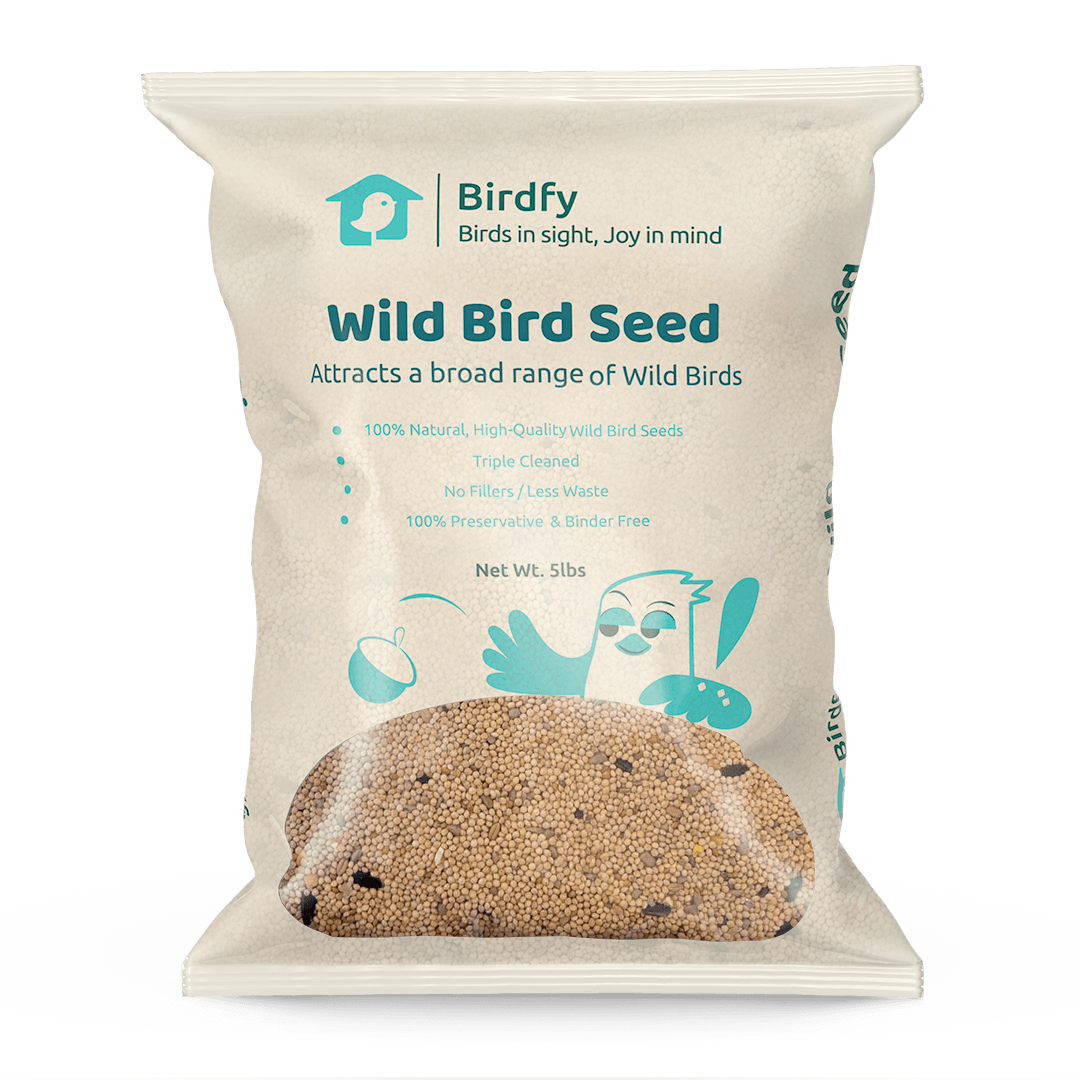Can Birds Tell If You Touch Their Nest?
Birds are wonderful animals. It makes homes called nests to lay the eggs and ensure its young ones are hatched. Some nest on trees, while others nest on the ground or in bushes. They are very overprotective of their nest and will try to defend it in any way. But can they tell if a person touches their nest? This is an aspect of concern to many people. For example, one could think that simply touching a nest – seemingly nothing terrible – makes it nervous. In this article, you will find information regarding their reaction when their nests are interfered with and how they deal with their eggs and young.

Learning when several types of birds are aggressive or defensive helps us be more compassionate toward them. This way, we will know how they feel about their nests and ways to prevent them from being interfered with. Now, let’s explore whether they can understand if their nests have been touched and what happens when such an event occurs.
Understanding Bird Behavior and Nesting
Birds are very much selective in the formation of their nests. They use branches of trees, leaves, and other materials to make a safe home for their eggs. When they nestle, they select a good site to keep secure. Most of them build their nests high up in trees, but some prefer shrubs or even holes in the walls of houses. Each species has the right way of how they want that nest to be made. Some of them are very quiet while building nests, and others may make noise to defend the area they are using.
Robins, sparrows, eagles, and others make very special nests. They use their nests as houses and homes where they raise their young and ensure they bring forth eggs. They understand the location of their nests in the most perfect way possible. It used to be accepted that they could remember where their nest was and always return to it. Robins like to groom their nests and frequently reuse the same nest in subsequent breeding seasons.
Can Birds Tell If You Touch Their Nest?
Yes, birds can vow whether or not someone has touched their nest. They have excellent senses. They can hear and see well. If someone comes and touches their nest, they may feel that something has changed. Of all their senses, they are susceptible to smell but mainly depend on their vision and hearing ability to detect any changes in their surroundings in the nest. If a nest is destroyed or, at least, someone tries to interfere with it, the bird can feel the difference between twigs or leaves.

They need to protect their nests. They know if something is not correct. If the nest feels different after being touched, it may change its behavior patterns and movement methods. Furthermore, it might fly around the nest or make other noises to chase the danger away. Moreover, they do not always prefer it when their nests are interfered with, so the sakers must not touch or move their nests.
Will A Mother Bird Come Back If You Touch Her Nest?
Many individuals frequently seek answers to this question. A mother bird may return to her nest if touched, but she could also get scared and fly away. She may not return to the nest if she is worried or if things make her tense. Mother birds are known to be very defensive with their young, especially if they feel their nest is threatened in any way.
In most cases, if you approach the nest or touch it, the mother bird will return to tend to her eggs or children. However, if the nest is again exposed to much disturbance or humans come too close, they may feel it is too dangerous to attest. First, respecting these species and their nests is necessary to encourage them to stay as much as possible in their chosen area.
Sensory Perception in Birds
Birds have great senses. Sight, hearing, and often smell are used by animals to avoid dangerous situations and lead healthy lives. They must have hierarchical vision since they can view objects from a great distance and have an acute sense of danger. Their eyes allow them to guard their nests against predation and be on the lookout for potential threats. They also have a suitable mode of hearing. For instance, these species can pick the sound humans cannot hear and use it to ground themselves on perceived threats.
Regarding their nests, they can change their sense and tell whether something has changed. If one touches the nest, one may feel the difference of the touch on the twigs or the leaves. Different species of birds have other measures of protecting their habitats. They understand their territory and what is right or wrong with their nest to avoid a situation. They are very protective of their young ones and will go to any length to protect them.
The Role of Scent in Nesting
It is clear that while birds have an olfactory sense, this is not as developed as man. The nests and occupants depend on sight and hearing to fend off threats. But smell can still be helpful to some extent. For example, some of them can distinguish between their babies or other birds by smell. Still, there are a few exceptions where they don’t feel comfortable with their names or whether their nest has been touching.
If a human touches a nest, the bird might not recognize it. Some people think that birds will vacate their homes because of human smell. However, research indicates that this is not always the case. Many are likely to abandon their nests if they perceive danger or fear. Their ability to smell is probably not the cause of their leaving; it is how they respond to changes most of the time.

Do They Recognize Human Touch?
Touch is the physical feeling of an object, and you must know that birds do not have this feeling as much as humans do. They don’t comprehend physical contact the way people do; they can’t; it’s not something they are equipped to understand or value. However, they can sense changes around them. Another possibility is that any interference with the nest through touch might somehow be transmitted to the bird as a ‘vibration’ or a shift in the nest. Even though they may not know that a human has touched their nest, they will know something has happened.
Humans are much larger than birds and do not travel similarly. They can also sense when something significant has encroached close to their nest. Although they may not describe our touch accurately, they can sense when something around them has altered. Therefore, avoiding contact with them and their nests is wise. The less disturbance, the safer the species will feel.
Impact of Disturbing Their Nest
Interference with the nest can be quite stressful for the bird. If it feels that its nest is being threatened, it will recommend that it vacate the area. Even a mother bird that should generally care for her eggs or babies may abandon them once she feels unsafe. Sometimes, the young cave becomes the price to pay since the nest is disturbed and the young ones are harmed.
They must take flight or scream to scare away the attackers if they are endangered. This is not good for their eggs and newly hatched chicks. Sometimes, they leave their nest entirely if it is interfered with too much. For this reason, special care should be taken not to interfere with or attempt to relocate its nest. If you find a bird's nest, let it be so it may continue enjoying its life.
Experiment
A recent experiment by 13 WMAs ascertained whether a mother bird would continue to care for their chicks if humans taloned the chicks or their nests. The experiment was conducted when a bird chose a nest site on the station campus and laid eggs, and the researchers raised a question about the influence of people on bird care for their offspring. The team found a nest with eggs and transferred it to a different place to ensure it was safe.

To take an even closer look, the team interviewed Vonda Morton, the director of Laurens Wildlife Rescue, to find out if laying a hand on the eggs or the chicks would result in the mother bird abandoning them. According to Morton, the lack of olfactory receptors disproves the myth of mothers not coming back if a human touches the babies, but the parents should be able to locate the nest even after it has been moved. She opined that the nest must be shifted about several feet at a time to a more secure location, which would be okay so long as the parents fly in.
The experiment also helped correct the belief that one should never feed babies. However, Morton emphasized that people should not feed the species themselves, as the parents are the best providers. She suggested that if a baby or nest is abandoned, it should be placed in a warm, safe, and dark area and watched until a wildlife rehabber can be contacted.
The experiment’s conclusion confirmed that, given appropriate conditions, the mother will continue to care for her young, whether or not the chicks and the nest have been exposed to humans.
Conclusion
Birds are very protective of their nests. They comprehend that something is wrong, even though they never learn what human contact feels like. These species employ their sense of sight, hearing, and incidental senses for their nest protection. Although they may not desert their nests on account of the smell that humans have, too much interference makes them uneasy. It might abandon its nest and stop feeding the babies if threatened.
Any genuine visitor must respect them and their home. Do not disturb it if you come across a nest. They require shalom and security to cater to their eggs and babies. As much as possible, be gentle and respect nature's beautiful creations, especially these wonderful birds.
































